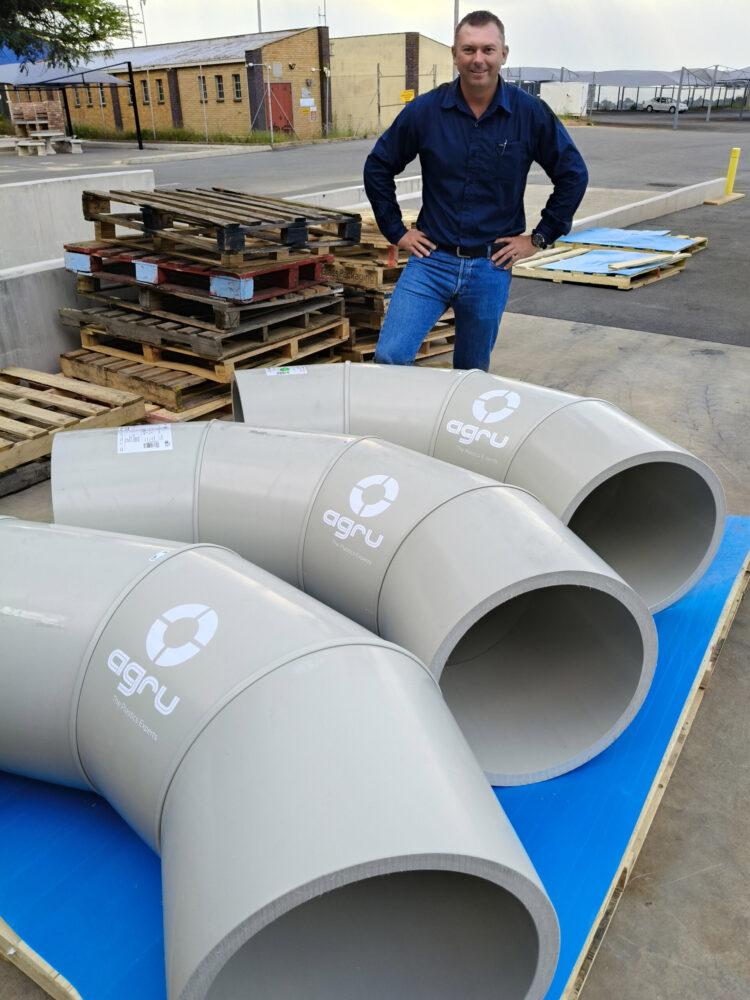Explore Our Bill Payment Services:

- Salary And Allowance
- Engineers Salary
- South Africa
Salary And Allowance Structure Of Nanotechnology Engineers In South Africa
Nanotechnology Engineering, sometimes called Nanoengineering, is one of the most futuristic and exciting fields of engineering. It combines elements of materials science, physics, chemistry, and mechanical engineering to create and manipulate systems at the nanoscale—the level of atoms and molecules. This discipline is at the heart of some of the most groundbreaking innovations in medicine, energy, electronics, and environmental science.
In South Africa, nanotechnology is steadily gaining traction in both academic and industrial spaces. Research institutions, universities, and specialized laboratories are exploring nanotechnology applications in mining, healthcare, water purification, and renewable energy. With this growth comes the need for skilled nanotechnology engineers who not only drive innovation but also enjoy competitive salaries and allowance structures.
In this blog post, we’ll explore in detail the salary and allowance structure of nanotechnology engineers in South Africa, looking at average pay, factors that influence earnings, benefits, career growth, and comparisons with other engineering fields.
Average Salary of Nanotechnology Engineers in South Africa
Like many engineering professions, nanotechnology engineering salaries vary depending on experience, location, and sector. On average, a nanotechnology engineer in South Africa earns around ZAR 31,700 per month, which translates to about ZAR 381,000 per year. This makes the profession relatively lucrative, especially compared to the national average wage across all industries.
Salary Range
-
Entry-level salaries: Around ZAR 16,500 per month.
-
Highest reported salaries: Up to ZAR 48,500 per month.
-
Median salary: ZAR 28,800 per month.
Most professionals in the field earn between ZAR 18,700 and ZAR 25,600 per month, which accounts for about 65% of all nanotechnology engineers in South Africa. Only a small percentage (about 5%) earn above ZAR 28,700 monthly, usually those in senior or highly specialized roles.
Impact of Experience on Salaries
Experience is one of the biggest determinants of pay for nanotechnology engineers. Here’s how salaries typically scale with years in the profession:
-
Less than 2 years of experience: ≈ ZAR 18,700/month
-
2–5 years of experience: ≈ ZAR 25,100/month (+34%)
-
5–10 years of experience: ≈ ZAR 32,700/month (+30%)
-
10–15 years of experience: ≈ ZAR 39,600/month (+21%)
-
15–20 years of experience: ≈ ZAR 43,200/month (+9%)
-
20+ years of experience: ≈ ZAR 45,500/month (+5%)
This progression shows that within a decade, a nanotechnology engineer can more than double their starting salary. The pay curve flattens slightly after 15 years, but steady growth remains.
Hourly Rate
When broken down, the average hourly wage for a nanotechnology engineer in South Africa is around ZAR 180/hour, with the lowest recorded at ZAR 95/hour. This is useful for contract-based or freelance engineering work, which is becoming increasingly popular in specialized fields like nanotechnology.
Salary Differences by Location and Sector
Where a nanotechnology engineer works also significantly affects salary:
-
Cape Town: Average of ZAR 34,900/month
-
Johannesburg: Average of ZAR 30,800/month
This shows that Cape Town tends to pay higher, likely due to stronger research institutions and academic hubs located in the city.
In terms of sector, salaries differ slightly:
-
Public sector (universities, research institutes, government labs): Average of ZAR 32,400/month
-
Private sector (corporate R&D, startups, industry roles): Average of ZAR 30,400/month
Interestingly, the public sector pays about 7% more, thanks to structured salary scales, pensions, and other benefits.
Gender Pay Gap
A persistent issue in many industries, the gender pay gap also exists in nanotechnology engineering. On average:
-
Men earn: ZAR 33,100/month
-
Women earn: ZAR 30,700/month
That’s an 8% difference in favor of men, despite equal qualifications. Efforts are ongoing across the engineering sector to close this gap, but progress remains slow.
Comparison with Related Engineering Fields
Nanotechnology engineers are positioned competitively compared to peers in similar specialized fields:
-
Nanotechnology Engineer: ZAR 31,700/month
-
3D Printing Engineer: ZAR 25,700/month
-
Automation Engineer: ZAR 29,800/month
-
Photonics Engineer: ZAR 32,800/month
This shows that while photonics engineers earn slightly more, nanotechnology engineers are ahead of many other specializations, especially in areas like automation and additive manufacturing.
Alternative Salary Estimates
While the average sits around ZAR 31,700/month, some reports suggest that nanotechnology engineers in certain corporate or R&D-intensive roles earn closer to ZAR 59,643 per month (≈ ZAR 715,720 per year). This higher figure likely represents specialized or senior roles in industries like energy, mining, or healthcare technology, where advanced nanotech applications are in demand.
Allowance and Benefits Structure
Specific data on allowances for nanotechnology engineers is not always available, but based on trends in engineering roles across South Africa, typical allowances may include:
-
Transport or Travel Allowance – Especially for engineers commuting to research facilities or industrial sites.
-
Housing Allowance or Stipends – Common in large companies or international assignments.
-
Medical Aid Contributions – Many employers cover part of health insurance costs.
-
Pension or Provident Fund Contributions – Structured retirement benefits.
-
Annual Bonuses or Performance Incentives – Often linked to project outcomes or research grants.
Public vs. Private Sector Benefits
-
Public Sector (universities, government research labs): Offers stability, structured pension schemes, medical aid, and annual salary increases. Academic positions may also come with research funding.
-
Private Sector (corporate R&D, startups, manufacturing companies): Benefits may include stock options, profit sharing, and flexible working arrangements. Salaries can be higher in startups or multinational companies, though benefits may be less standardized.
Comparison with Other Engineering Benefits
Looking at related engineering professions gives a clearer picture of what allowances nanotechnology engineers might expect:
-
Chemical Engineers: Reported to earn high base salaries with bonuses ranging from R 8,000 to R 75,000 per year.
-
Metallurgical/Materials Engineers: Annual salaries around R 275,000, often with profit sharing.
-
Engineers in large firms like Sasol: Median pay of about ZAR 800,000/year, with additional pay such as stock options and bonuses averaging ZAR 100,000/year.
This suggests that senior nanotechnology engineers in big firms, particularly in the energy or materials sector, could earn similar packages.
Career Stages and Salary Growth
1. Graduate Entry Stage
-
Starting salary: ≈ ZAR 18,700/month (≈ ZAR 225,000/year).
-
Net take-home (after tax, pension, and medical aid) often slightly lower, around ZAR 17,000/month.
-
Allowances: May include transport subsidies and entry-level medical aid.
2. Early to Mid-Career (2–10 years)
-
Salary range: ZAR 25,000–32,000/month.
-
Benefits: Health cover, retirement contributions, possible travel stipends.
-
Career growth often tied to specialization, postgraduate qualifications, or experience in high-demand industries.
3. Senior to Expert Level (10+ years)
-
Salary range: ZAR 39,000–45,000/month and beyond.
-
Top roles (especially in corporate or energy sectors): Total packages may exceed ZAR 800,000/year including bonuses and stock options.
-
Allowances: Housing benefits, performance bonuses, and leadership incentives.
Geographic and Sector Effects
-
Cape Town: Higher average salaries due to concentration of universities and research centers.
-
Johannesburg: Salaries slightly lower, but more opportunities in corporate and industrial settings.
-
Public Sector: Greater job security and structured benefits.
-
Private Sector: Higher risk but potential for larger financial rewards, particularly in startups or multinational R&D divisions.
Gender Pay Gap and Equality Efforts
The 8% gender gap shows a need for improvement. Encouragingly, many South African universities and companies are working to promote women in STEM fields, with mentorship programs, scholarships, and diversity initiatives aimed at closing the gap.
Conclusion
Nanotechnology engineering in South Africa is a growing profession with strong salary potential and promising career opportunities. Starting salaries are modest, but within ten years, most engineers see their income double. At the senior level, total compensation can reach impressive figures, especially when allowances, bonuses, and benefits are included.
The public sector provides structured benefits and stability, while the private sector offers performance incentives and higher growth opportunities. Location also matters—Cape Town often pays better due to its strong academic and research presence, while Johannesburg provides broader corporate opportunities.
For young engineers, the path forward is clear: gain experience, specialize in high-demand nanotechnology applications, and leverage skills in sectors like materials, mining, and energy. Negotiating allowances and staying informed about pay trends can further maximize career earnings.
Nanotechnology may be a niche field today, but it’s one that promises not just exciting scientific opportunities, but also rewarding financial returns for those who pursue it.









